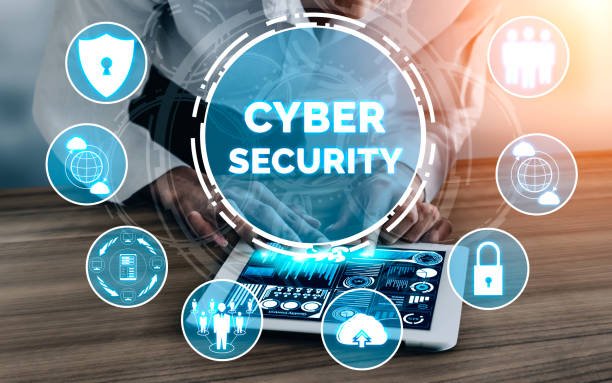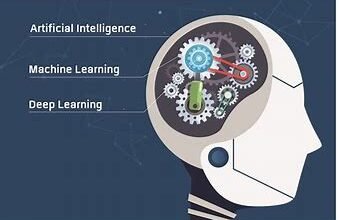Typical startup cybersecurity mistakes

There are over a million tips to help a startup stay afloat online. While advisers tend to focus on the areas of marketing strategy, business planning, and attracting additional investments, articles seldom address the issue of creating a strong cybersecurity system. A startup can lose its potential success if it doesn’t have a good understanding of the threats. We will be discussing the most common cybersecurity errors and how to avoid them.
The problem is at the source
Let’s say you have a brilliant idea with your friend, then you share it with your friends. Then you get together a bunch of people and you create your dream team. This is how Uber, Pinterest, Twitter and other well-known projects got their start.
Problems arise when startups go beyond an idea and start to build real workflows or hire additional staff. The small group of like-minded individuals becomes a team made up of random people with diverse views and life experiences. Employees in such a group may have different views on what information should be kept confidential and how to protect it.
Let’s take an example. One employee decides it would be easy to write down the password for an online service using chalkboards. This way, everyone can quickly find it. A colleague posted a selfie of themselves in the office to a social networking site, saying “who would write confidential information on the chalkboard where everyone can see?” This type of misinterpretation is why startups young can get into cyber-security problems. Only a corporate culture of cybersecurity can solve this problem.
However, many people who work in startups are adventurers and enthusiasts. They quickly fall in love and then can quickly leave. Modern startups rely heavily on IT specialists, who tend to move from one business to another over the course of many years.
Combining these two factors can lead to high turnover. These conditions can lead to many mistakes, particularly cybersecurity-related ones. It is easy to forget about a cyberthreat which can be easily avoided.
Common cybersecurity errors
Imagine if you didn’t notice how your startup became a full-fledged company. What cybersecurity errors could you have made thus far?
Access rights that are too restrictive
Administrator rights are often granted to startup employees when they need access to corporate resources and services. The person who shares these access rights often thinks it is easier to grant access to all resources at once without fully understanding the needs of each employee. It’s also more convenient to receive new access requests every week. The likelihood of making an error increases the more access rights an employee holds. To reduce the incidence of cyber incidents, you should limit access rights to workflow participants.
Inadequacy of information storage system rules
This is generally bad news for any business. However, a startup may find it difficult to locate important files due to staff turnover. They are most likely to be somewhere. But where is the mystery? This was discovered by a marketing intern or developer, who then left the company without ever telling anyone.
Forgotten passwords
Forgotten passwords to corporate social networks and other services that are rarely used is another common problem. A new employee may create a Facebook or LinkedIn profile to promote their business. However, they fail to share the details with others and then leave for a different role. The login credentials are gone with very little chance of recovery.
Password sharing
It may seem like a good idea for high turnover companies to have shared accounts. However, sharing passwords can lead to it being leaked due to negligence, phishing, or malicious intent. It can also complicate the investigation into an incident if it occurs. Let’s suppose that an attacker gains access to an account. Experts suspect that malware has intercepted the password and they want to verify that an employee had the access. It turned out that everyone had access!
Cloud services passwords
A second mistake in password management is to save them in a Google Docs file. An incorrect setup will make it accessible by anyone who has the link. It is easy to share the information with all employees. All you have to do is to create a single document and then send the link. Such documents from Google can be found by search engines. This means that the password file could fall into the wrong hands.
Two-factor authentication is not available
If startups didn’t neglect two-factor authentication for work accounts, some of the password problems would be less serious. This will allow you to protect your data from theft, such as phishing. Two-step protection should be applied to all financial services such as Upwork.
Cyber threat prevention tips for all
These tips will help you avoid common mistakes made by start-ups and small businesses.
- The least privilege principle should be followed when granting access to resources and services. This means that employees should only have the minimal set of access rights necessary to complete their job.
- Find out where and who has access to the most important information in your startup. This information will help you create guidelines for hiring new employees. You can clearly define which accounts should be used for which roles and which accounts should be restricted to certain positions.
- Cyberthreats can be prevented by a mature corporate cybersecurity culture. For example, you could start by creating a cybersecurity manual that is accessible to all employees. This will ensure everyone is on the same page. This is a great example for new employees.
- Passwords should be kept safe in a password manager. This will make it easier for employees to not forget them or lose them, and will also reduce the possibility that someone outside will gain access to your accounts. Two-factor authentication is also recommended whenever possible.
- Your employees should be instructed to lock their computers when they leave the office. Keep in mind that any third party can visit your office, including clients, couriers and job seekers.
- Antivirus software is recommended to protect your computer from trojans, viruses and other malicious programs.
Prilient Cyber Security Services can prevent a wide range of cyber threats. This solution protects your employees’ computers from ransomware, and other cyberthreats. It also includes a password manager.




